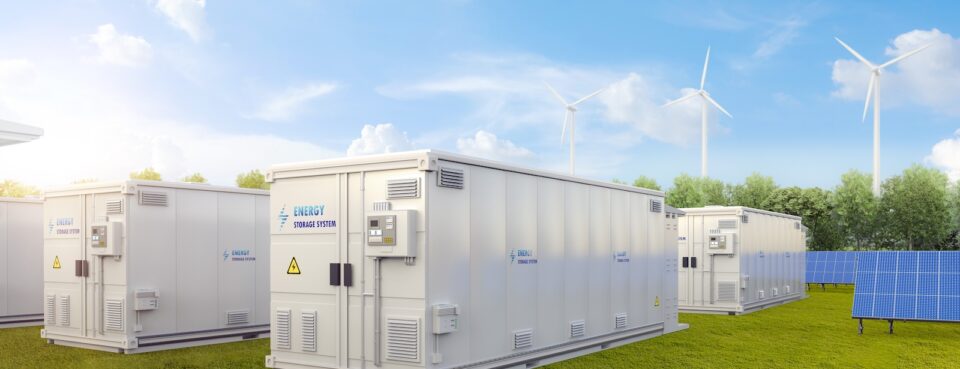BESS is the acronym for battery energy storage system.
What is a battery energy storage system?
A battery energy storage system (BESS) consists of a group or set of batteries used to store energy for later use within a system of power generation and distribution.
There are several different types of battery than can be employed in a BESS: lithium-ion, lead-acid, flow, sodium-sulfur, solid state are some of them. More commonly the lithium-ion battery is used, with lead-acid also having their place for certain applications. The system requirements will inform the type of battery employed.
How many batteries included in the system will depend on the energy requirements for any particular application. The collection of inter-connected batteries may also be limited to area constraints.
There are several factors to consider during planning and design of a BESS, which will form one part of a whole energy generation and distribution system. Power produced from a source or sources, such as wind or solar, is stored in the BESS until required for delivery to the end user.
With proper and effective management systems, a BESS ensures the best balance between energy supply and demand. When energy is being generated at a greater rate than demand, the extra power is stored in the BESS. When power generators are not producing, for example when there is no wind to turn turbines, the stored energy in the BESS can supply demand.
If the supply falls short of the demand, users can contemplate upgrading their storage system to a higher capacity, particularly if they have an expandable BESS like our DEUTZ system.
Increased energy efficiency also assists the main grid which can be supported by the BESS at times of peak demand. It also overcomes the difficulties of managing power outages as it can step in to cover times when the grid is down.
All the batteries in a BESS are located within a temperature-controlled environment which must be managed to ensure optimisation of the system and lengthen the lifespan of the batteries.
The BESS is connected to a battery management system, a power conversion system and an energy management system, all managed by powerful computer systems using sophisticated programming.
Whilst the BESS may often be integrated with the main grid, it is capable of being isolated from the grid to work in ‘islanded’ mode.
Islanded systems also offer energy solutions for remote and rural communities where the main grid may not reach or is unreliable, giving them autonomy over their energy requirements. If you are uncertain about how to setup your initial battery storage system, DEUTZ New Zealand Technical Support Team and our authorised dealers are available to provide assistance.
Battery energy storage systems are becoming part of the solution for reliable, sustainable energy delivery into the future. They provide the capacity to store energy generated from renewable sources, increase efficiencies and flexibility in power delivery, and energy security.


